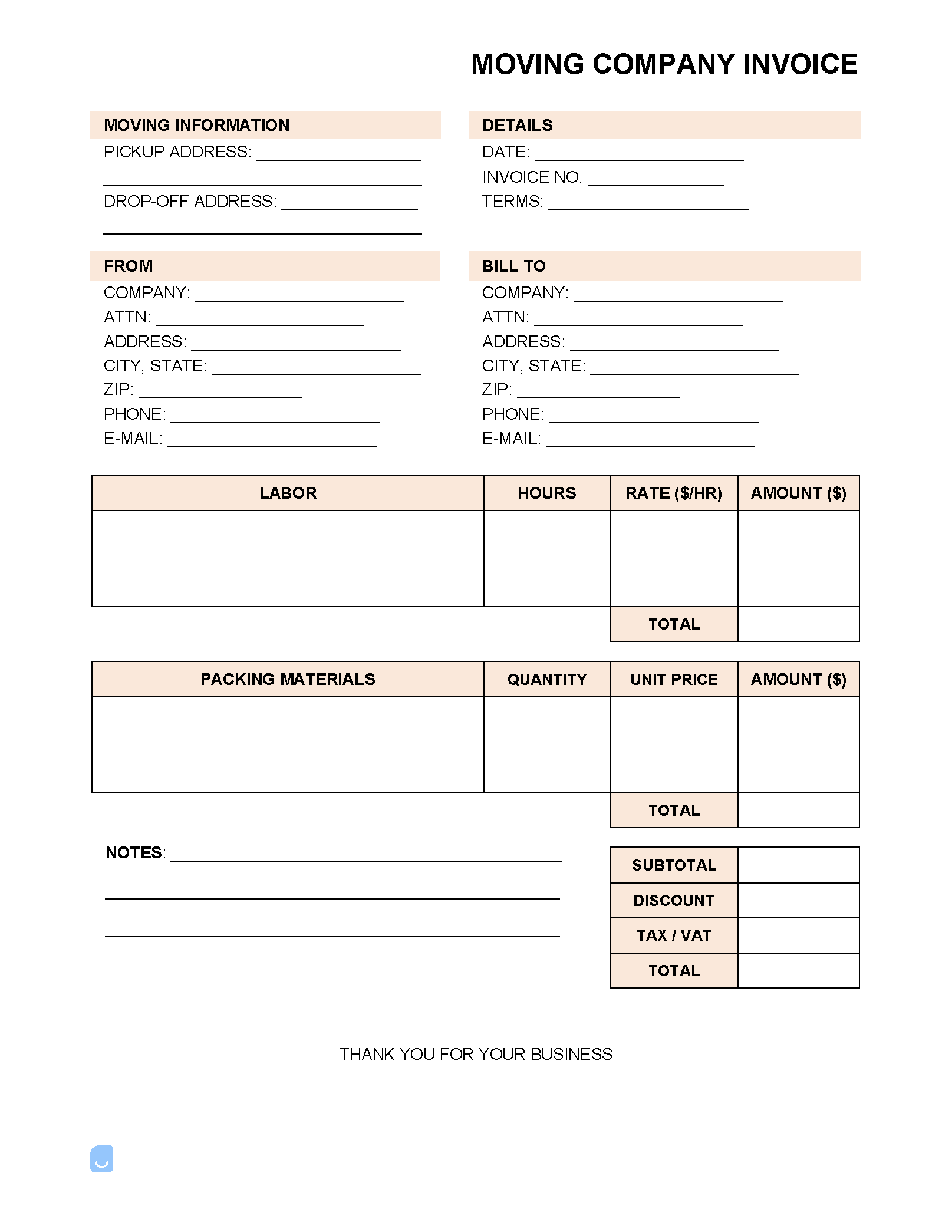Moving Company Invoice Template
A moving company invoice is an easy-to-understand bill that organizes the charges resulting from the moving of an individual’s belongings from one location to another. Moving companies charge their services based upon a set of pre-established fees, an hourly rate, and/or a custom quote that factors in the number of belongings the customer owns, the distance between residences, and the number of movers hired to complete the job.
What Do Moving Companies Do?
Moving companies, or “full-service movers” take care of everything correlated with a move. According to Moving.com, this includes:
- Furniture Disassembly
- Packing up all belongings
- Supplying the packing materials & supplies
- Loading and unloading the truck
- Transporting the belongings
- Disposal of packing materials (boxes, packing peanuts, etc)
Most moving companies charge on an hourly basis for short-distance moves, with the more complicated, longer-distance moves being charged on the combined weight of the items being shipped. Moving.com states the average “local move” as $2,300 for four (4) movers at $200/hr (with an average weight of 7,400 pounds). The average “interstate move” costs an average of $4,300 (also based on a weight of 7,400 pounds). The
Required Permits
The number and type of permits moving companies are required to hold is mainly determined by the state in which they are operating, and if they will be crossing state lines during the move.
US DOT Number – According to the Federal Motor Carrier Safety Administration (FMCSA), a DOT Number is required for vehicles that have a gross weight rating (or gross combination weight) of 10,001 pounds (lbs) or more and are involved in interstate commerce (the crossing of state lines).
Authority to Operate (MC Number) – In addition to a DOT Number, moving companies are required to get an MC Number if they will be conducting interstate transportation. Per the FMCSA, a “Motor Carrier of Household Goods (Moving Companies)” are required to complete Form OP-1, which is the official application for obtaining an MC Number. According to Form OP-1, the applicant will need to file “proof of public liability (BI & PD)” as well as cargo insurance with the FMCSA.
-
- Insurance Filing Requirements
- Filing either BMC-91 or BMC-91X is required for proving bodily injury (BI) and property damage (PD) insurance is held by the moving company.
- Filing BMC-34 for proof that the moving company holds cargo liability insurance.
- Head to the following URL for applying: https://li-public.fmcsa.dot.gov/
- Insurance Filing Requirements
State-Specific Requirements – For Intrastate transportation (within state boundaries), there are currently thirty-six (36) states plus Puerto Rico that require a state-specific DOT Number. Mover Search Marketing has created a handy fifty (50) state guide that breaks down each state’s requirements, alongside the applicable state website
Mover Salary & Hourly Rate ($/hr)
Salary: $33,570/yr (source: BLS) Hourly Rate: $16.14/hr (source: BLS)
